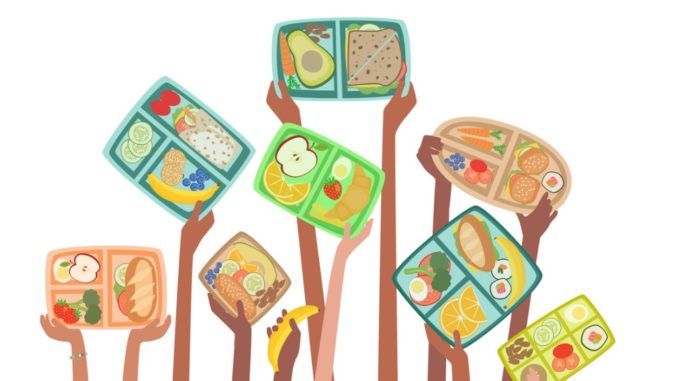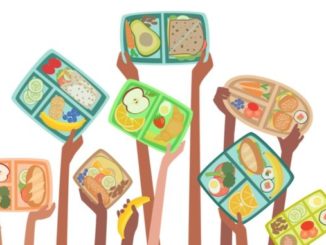
The DfE have updated their guidance on free schools meals due to an extension for certain groups
The DfE have temporarily extended free school meal eligibility to include some children of groups who have no recourse to public funds (NRPF). These groups are:
- children of Zambrano carers;
- children of families with no recourse to public funds with a right to remain in the UK on grounds of private and family life under Article 8 of the European Convention on Human Rights;
- children of families receiving support under Section 17 of the Children Act 1989 who are also subject to a no recourse to public funds restriction.
These groups are subject to a maximum household income threshold of £31,500 per year for London, and £28,200 for areas outside of London. See the London or outside London section if you are unsure which threshold applies for your circumstances.
The DfE are also temporarily extending eligibility to children of a subset of failed asylum seekers supported under Section 4 of the Immigration and Asylum Act 1999. This group is not subject to a maximum household income threshold as these families are not able to work.
This extension covers both children who are attending school and children who are self-isolating at home because they, or a member of their household, have tested positive for COVID-19. This guidance explains who these groups are, and how schools can confirm their eligibility and award free school meals since schools and local authorities are not able to use the eligibility checking system (ECS) to confirm eligibility for these families as they will not be in receipt of universal credit or legacy benefits.
London or outside London
Whether or not a person will be considered within the London, or outside London, thresholds will be determined by the address of the family. If the family is living within the local authority of one of the 33 London boroughs, including City of London, the income threshold for NRPF families will be £31,500 per year. If the family does not live within one of these local authorities, the income threshold for NRPF families will be £28,200.
This map shows the boroughs that form London.
Who is eligible?
Zambrano carers
A Zambrano carer is the primary carer of a British citizen child or dependent adult, where requiring the primary carer to leave the UK would force that British citizen to leave the European Economic Area (EEA). They must be able to show:
- that the carer/parent is not a British citizen;
- that the child is a British citizen;
- that the carer is a direct relative or legal guardian of the child;
- that they have primary responsibility of the child;
- that there are no other members of the carer’s family in the UK or the EEA who could look after the child.
More detailed information on Zambrano carers is available in the Home Office guidance on derivative rights of residence. Zambrano carers are able to work and, as such, eligibility for free school meals is subject to a maximum annual household income threshold of £31,500 within London, or £28,200 outside of London. See confirming household income for further guidance.
Suggested evidence
You should ask families to sign a self-declaration form as part of their application for free school meals. A sample application form including a self-declaration is available, but you can use an alternative if you prefer.
Zambrano carers are not currently required to apply to the Home Office for confirmation of their status, however many will choose to apply for a derivative residence card to demonstrate their right to reside and work in the UK; as this is not a mandatory requirement, not being in receipt of this card does not necessarily mean that the carer does not hold this status.
Article 8 of the European Convention on Human Rights
Article 8 states that everyone has the right to respect for his private and family life, his home and his correspondence. Carers with leave to remain under article 8 are able to work and, as such, are subject to a maximum annual household income threshold of £31,500 within London, or £28,200 outside of London, in order for their child to be eligible to receive free school meals. See confirming household income for further guidance on assessing this.
Suggested evidence
You should ask families to sign a self-declaration form as part of their application for free school meals. A sample application form including a self-declaration is available, but you can use an alternative if you prefer. Carers who have leave to remain under article 8 will be able to provide a letter from the Home Office granting them leave to remain in the UK and/or a biometric residence card.
Section 4 of the Immigration and Asylum Act 1999
Section 4 allows the Home Office to provide support to a subset of refused asylum seekers who are classed as destitute, and meet their criteria. People receiving Section 4 support are not allowed to work and, as such, there is no requirement to confirm income.
Suggested evidence
You should ask families to sign a self-declaration form as part of their application for free school meals. A sample application form including a self-declaration is available, but you can use an alternative if you prefer. Carers who are receiving Section 4 support will be able to provide a letter from the Home Office or local authority confirming Section 4 support and/or an ASPEN card.
Section 17 of the Children Act 1989
Section 17 places a general duty on local authorities to safeguard and promote the welfare of children in need by providing a range and level of services appropriate to those children’s needs. A child will be considered in need if:
- they are unlikely to achieve or maintain, or to have the opportunity to achieve or maintain, a reasonable standard of health or development without the provision of services by the local authority;
- the child’s health or development is likely to be significantly impaired, or further impaired, without the provision of such services;
- the child is disabled.
The support local authorities provide will vary depending on the individual needs of the child and/or family. This support is not provided exclusively to people with NRPF – however, the extended eligibility for free school meals is available only to families with NRPF.
Some families receiving Section 17 support are able to work, and as such are subject to a maximum annual household income threshold of £31,500 within London, or £28,200 outside of London, in order to be eligible to receive free school meals. See confirming household income for further guidance on assessing this.
Suggested evidence
You should ask families to sign a self-declaration form as part of their application for free school meals. A sample application form including a self-declaration is available, but you can use an alternative if you prefer.
Families receiving Section 17 support should have a ‘child in need’ pack from the local authority which lists the support that they will be providing to the family. This is updated and reassessed every 3-to-6 months. Schools can ask to view a copy of this dated within the last 6 months to verify that this support is being received.
Confirming household income
In order to be eligible for free school meals the maximum annual household income threshold is £31,500 within London, or £28,200 outside of London, to be applied after tax. This equates to £2,625 a month for London applicants, and £2,350 a month for applicants from outside of London. See the London or outside London section if you are unsure which of these thresholds will be applicable.
You should ask families wishing to apply to fill out a self-declaration. To verify this, the DfE suggest asking to view either a:
- payslip;
- P60;
- bank statement;
- letter from their bank;
- letter from their employer;
- letter from the local authority confirming support, if applicable.
Families who are receiving Section 4 support are not allowed to work and, as such, their income does not need to be verified.
Providing an application form
The DfE have provided a sample application form, including a self-declaration form, that you can provide to carers for assessing eligibility. Use of the sample application form is not mandatory; you can create your own form if you prefer.




Be the first to comment